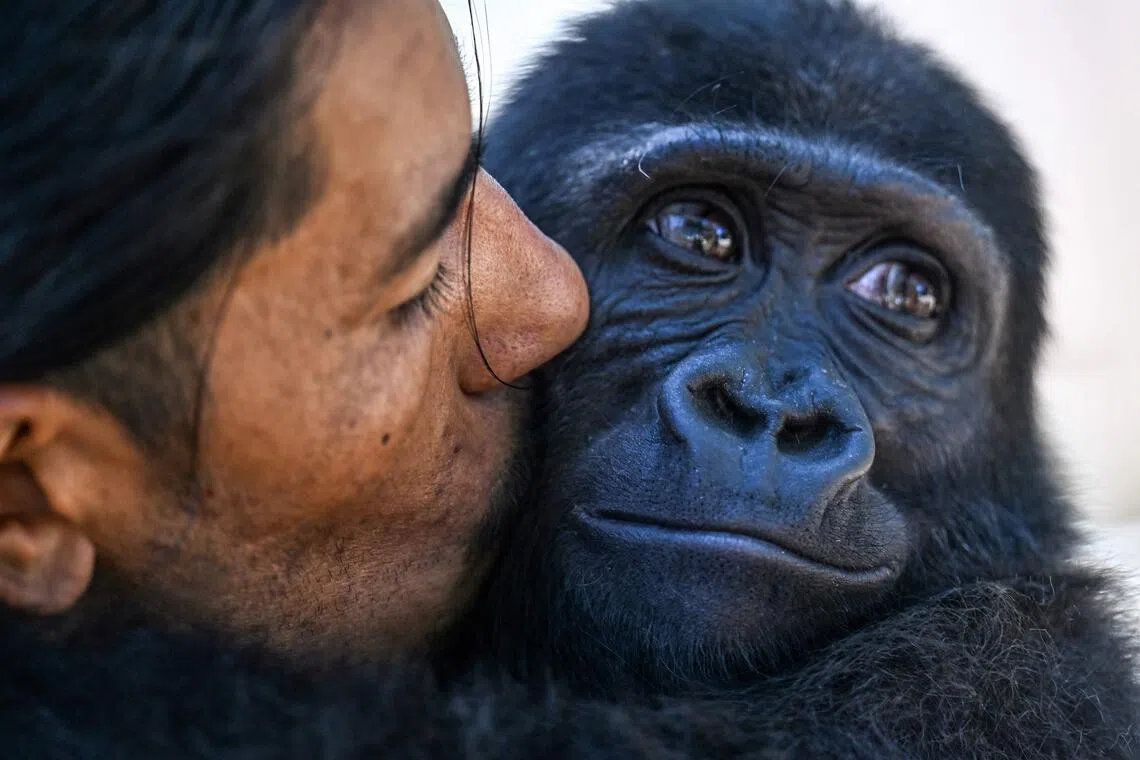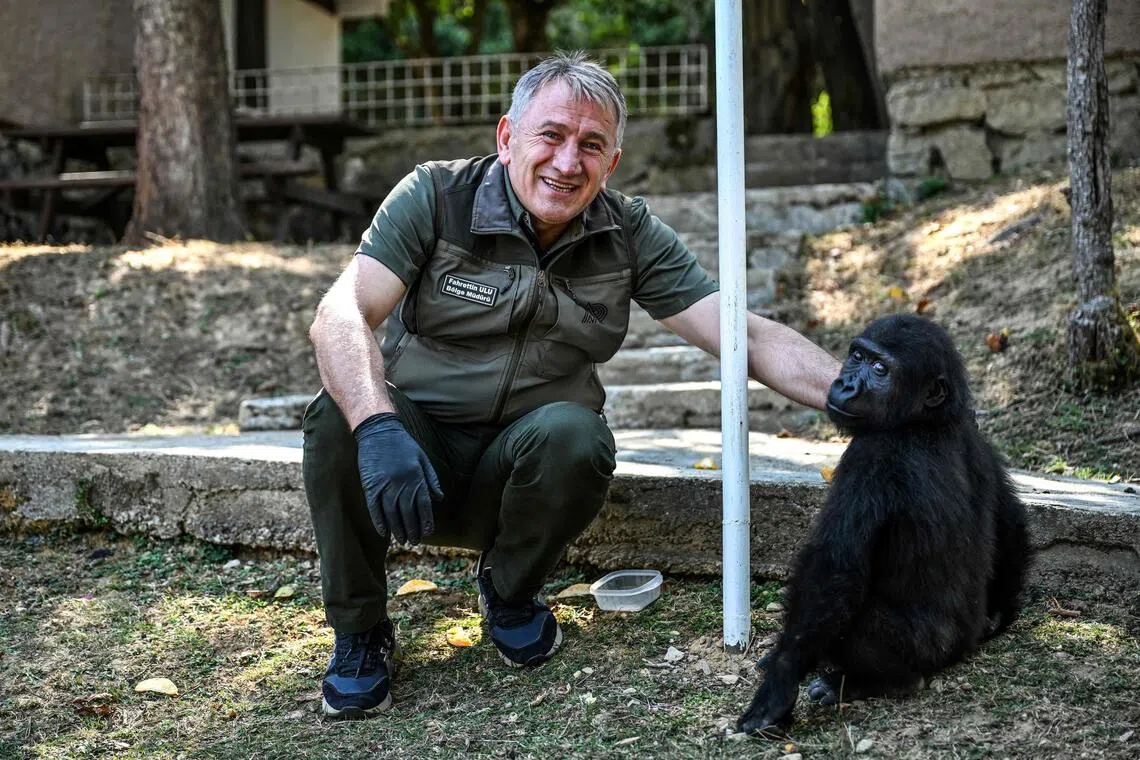Rescued baby gorilla Zeytin to stay in Istanbul after DNA test reveals origins
Sign up now: Get ST's newsletters delivered to your inbox

Western lowland gorilla Zeytin - seen here at the Polenezkoy Zoo in Turkey's Istanbul - will remain in Turkey rather than be repatriated to Nigeria.
PHOTO: AFP
Follow topic:
- A baby gorilla, Zeytin, rescued from traffickers at Istanbul airport, will stay in Turkey, not Nigeria.
- DNA tests revealed Zeytin is a Western lowland gorilla, not native to Nigeria, his initial departure point.
- Critically endangered, he'll live in a Turkish zoo, as trade in baby apes rises for pets and social media.
AI generated
ISTANBUL - A baby gorilla who was rescued from trafficking at Istanbul airport just before Christmas will remain in Turkey rather than be repatriated to Nigeria, Turkish officials said on Oct 24.
The young primate was five months old when he was discovered inside a wooden crate in the cargo section of a Turkish Airlines plane en route from Nigeria to Thailand, and taken in a zoo in the hills outside Istanbul to recover.
Named Zeytin – Turkish for olive – he was nursed back to health with the aim of sending him back to Nigeria, where he began his journey, in line with the regulations in the Cites treaty limiting the trade of protected animals.
Following a Nigerian request for his repatriation, Turkey’s nature conservation and national parks directorate began the process, but stopped it after a DNA test confirmed Zeytin belonged to a species that was not native to Nigeria.
“The DNA test... using whole genome sequencing, revealed Zeytin was a Western lowland gorilla. This scientific evidence showed that Nigeria was not Zeytin’s country of origin (which) necessitated a re-evaluation of Zeytin’s conservation status,” it said.
The Western lowland gorilla is a critically endangered subspecies native to the rain forests of central Africa, whose numbers have plummeted in recent decades because of deforestation, hunting and disease.
“Since Nigeria is not the country of origin, it was decided... to place Zeytin in a zoo in Turkey,” it said. Until now, he has been looked after at Polonezkoy Zoo near Istanbul.
In September, Mr Fahrettin Ulu, regional director of Istanbul’s Nature Conservation and National Parks directorate, told AFP it was the first time a gorilla had been seized at Istanbul airport.
When he first arrived, Zeytin weighed 9.4kg but by early September he weighed 16kg and his height increased from 62.5cm to 80cm, he told AFP.
Zeytin, “who was once a baby, has become a young gorilla”, he added.

Mr Fahrettin Ulu with Zeytin at the Polenezkoy Zoo in Istanbul, Turkey.
PHOTO: AFP
According to Traffic - a trade in wild species monitoring group - buyers are increasingly looking for baby great apes as pets or for zoos, circuses, shows – or for social media content, and were increasingly targeted for being “easy to transport”.
Traffic said the Nigerian authorities had been expecting Zeytin to return in September, and were to have sent him to an NGO called the Pandrillus Foundation.
There he would have been housed with another young gorilla of the same subspecies before eventually being sent to a habitat country sanctuary in central Africa, the foundation’s director told AFP. AFP

